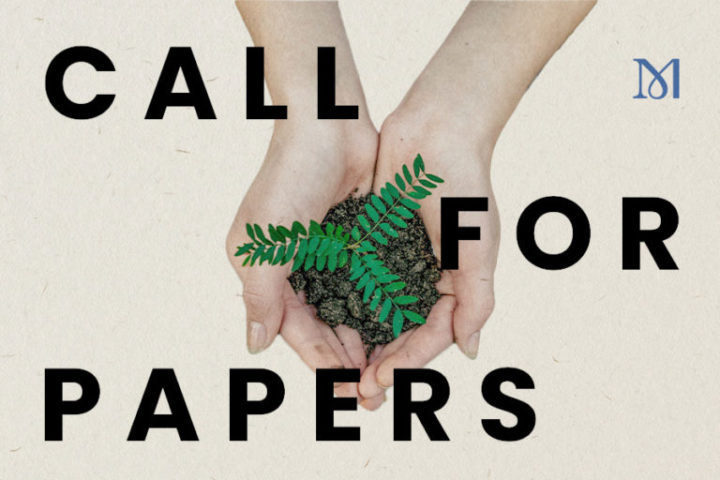ICOM is preparing an issue of Museum International on the theme of Museums, sustainability and sustainable development (Vol. 74, Nº 297 – 298).
All proposals submitted will be assessed for suitability, and if chosen, the subsequent articles will go through a double-blind peer review process. The issue is expected to be published, in collaboration with Taylor&Francis/Routledge, in December 2023.
As environmental protestors bring their activism into major international art galleries, the museum sector cannot ignore the many pressing social, economic and environmental issues affecting humanity and the biosphere. What is needed to make a sustainable museum in the 21st century? How can museums actively contribute to sustainable communities? Is our own museum practice implicated in actions that may harm the planet? How can museums participate in, and even lead, the transformations necessary for both humans and our planet to survive and thrive?
Museums, sustainability and sustainable development
In a world facing socio-ecological collapse, museums have a pivotal role in building local responses and collective approaches that promote a range of mutually supporting sustaining practices for a habitable world. For the next issue of Museum International, we invite authors to send proposals that reflect on the multiple understandings and experiences of the roles of museums in relation to sustainability and sustainable development both locally and globally.
We recognize that the notion of sustainability has different meanings depending on national context and the local economic rationale, while sustainable development captures all three social, economic, and environmental dimensions, enshrined in the fundamental principles of the United Nationa’ Agenda 2020 function as a framework to support the implementation of the Sustainable Development Goals (SDG) and the five (5) ‘P’s (People, Planet, Prosperity, Peace, Partnership). Furthermore, some museums are taking into consideration the concept of sustaining practices more broadly, through engagement with indigenous practices attuned to living ecosystems.
Sustainability and Sustainable development have different interpretations globally that lead to different actions, depending on local priorities. We therefore encourage authors to express a range of ideas about sustainability and sustainable development, including their critique, and how these can and might relate to museums’ activities and the communities they serve – what should and could these encompass in the context of museums? It is crucial for both ICOM and the wider museum sector to discuss a range of perspectives, policies and practices.
We welcome a diversity of submissions that can inform the sector on what is being done or emerging in this sphere and also develop inspirational ideas for future practice.
We encourage the authors to share different perspectives of museum practices and actions through which museums contribute to or even drive the shift towards a sustainably developed future. We welcome contributions that address the following non-exhaustive list of topics:
- Museum as social and community activator
- Museum governance models and operations
- Museums and Public Programmes (exhibitions, activities, education programmes)
- Museum economics
- Museums’ environmental footprint
- New museum practices
- Museum partnerships and networks
- Museums and indigenous technologies and their pedagogies for sustainability
- Museum activism and leadership
- Museums and creative commons (licence-free access to images, exhibitions and publications)
Submission process
Abstracts of between 250 and 300 words, written in English, French or Spanish, should be submitted for selection to publications@icom.museum
Contributions will be on a voluntary basis.
The following information should be included with the abstract:
- Title of submitted paper
- Name(s) of author(s)
- Professional background
The abstract submission deadline is 20 February 2023.
The abstracts received will be examined on a blind review basis by a panel of experts on the topic.
Museum International is currently published in English and Chinese only. However, proposals in the other two official languages of ICOM (French and Spanish) will also be considered. If your abstract is selected, we will send you guidelines for your full article, which you will be given approximately two months to complete. You may also submit your full article in either English, French or Spanish.
Abstract structure for Museum International articles:
An abstract is a summary of the journal manuscript.
It should be no longer than 250-300 words and provide a succinct overview of the article.
The abstract should read as a standalone document.
Abstracts sent to Museum International should include the following sections:
1/Introduction: describes the overall topic dealt with in the article and provides background to the study.
2/Research question(s)/Critical issue(s): explains the key research question or critical issue, by stating the problem addressed. It should also highlight the gap in existing research on the topic.
3/Innovation: explains the approach to the research question/issue, and the new perspective adopted.
4/Methodology: explains how the research was carried out (e.g. case studies, interviews, etc.) or the means used to address the critical issue.
5/Conclusion: outlines the impact of the research or the outcome of addressing the critical issue, and why the findings/outcomes are important.
6/Selected references: a selection of the references that will be cited in the article.
